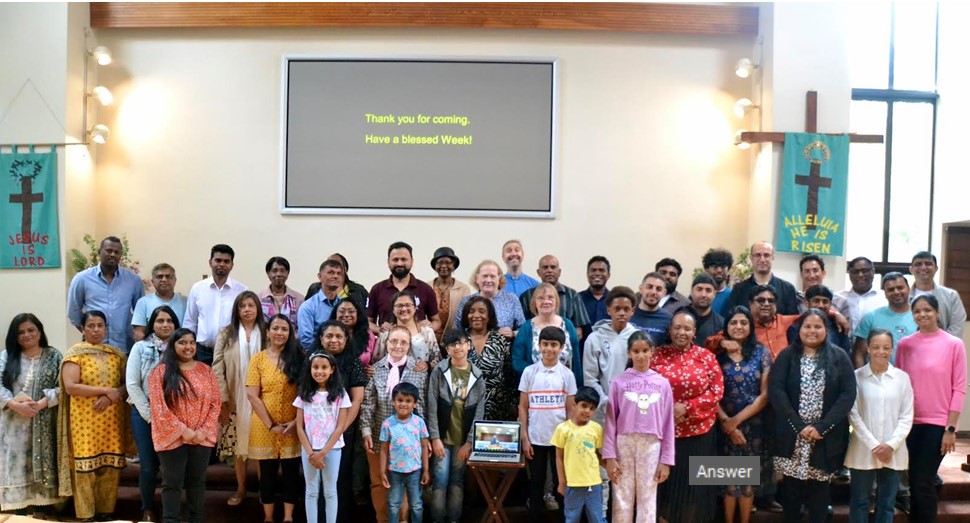When Steve and Ali Taylor arrived in the multi-cultural Parish of Alperton, North West London, they inherited four separate congregations worshipping in three different languages across a very busy Sunday. That was ten years ago. Today the parish has one congregation and one service where worship happens together in multiple languages.
What does it take to move from being a multi-cultural to an inter-cultural church and why does it matter?
Ali provides the background:
“The desire of the congregations was to be more united. That’s the right thing to do, isn’t it? We are one in Christ! But it’s difficult… There were attempts at joint services led each time in a different language, where at least half the congregation were clueless as to what was going on. There were bring and share meals where everyone brought what they wanted to eat, and only ate what they’d brought! We tried everything – even experimenting singing a song in all three major languages at the same time, which was hilarious but not exactly edifying. Worshipping together was increasing but was painful every time.”
A number of factors began to force a change.
Reforms to immigration law meant the Tamil and Hindi speaking congregations needed more support. One Tamil man came to live at the vicarage as his visa rights were contested. He began to attend the English morning services. New relationships began to form.
COVID lockdown sent services initially online and then to ‘speaking only’ when socially distanced meetings were allowed. Intercessions and Bible readings spoken in mother tongues – Bulgarian, Farsi, Gujarati – began to bring a new beauty to worship. The high point of the service became the Lord’s prayer– spoken by each person in the language of their heart. As singing was able to be incorporated, new simple songs were sung with verses or individual lines in different languages.
Not everyone was happy with change. Some people painfully left the church. “We can’t understand the service anymore. We’re not being fed.” But it was becoming clear that while this is not a comfortable way of doing church it is a socially just and godly way.
Explaining what had been painfully necessary over decades to fit in, a Caribbean heritage member of the PCC said, “There are parts of me that I leave behind at home when I come to church.” As the church began to practice a radical welcome, honouring all cultures, the result was an enriching of worship and an experience of joy. New songs originating from the Caribbean and lines in other songs sung in patois introduced cultural practices like singing through grief and new ways of dancing – revealing a community that had been hidden. Meals together became one group cooking for all the others, enabling the church to pray for one another, breaking down racial barriers.

And the results are striking. God appears in the messiness. Wisdom amid the seeming foolishness. No one gets left out. “Other people singing in your own language is honouring, and the happiness shows on peoples’ faces.” In the words of one congregation member:
“We are not to tolerate one another. We are not merely to love one another. We are to glorify one another’s difference and make people more themselves”.
